PLOT: In A.D 33, Jerusalem, a hustler named Clarence (LaKeith Stanfield), thinks he’s found the perfect con – he’s going to pose as a new messiah. Yet, when the plan works better than expected, he finds something he never thought he would – faith.
REVIEW: It’s interesting that people are comparing The Book of Clarence to Life of Brian, as other than the A.D 33 setting, they have next to nothing in common. When people heard Jeymes Samuel would be making an off-kilter comedy set at the time of Jesus Christ, they assumed it would be a hard-hitting satire. But the truth is that The Book of Clarence is ultimately a morality tale with heavy Christian themes. While the apostles may take a ribbing, Jesus himself is presented as an unassailably positive character. The result is a movie that will probably have a more challenging time crossing over to a large audience than the director’s previous film, The Harder They Fall. It’s perhaps too religious for a largely secular audience. At the same time, the sizeable Christian audience that might appreciate it may find the edgy humor and the fact that black actors portray all the Israelites in the movie too provocative.
In many ways, this isn’t much different than what Martin Scorsese did in The Last Temptation of Christ, where Americans played the Israelites and the British played the Romans. Here, the Romans are played by white actors, although it should be said that not every white person in the film is supposed to be Roman. In some ways, The Book of Clarence almost feels like a Biblical epic from the fifties or sixties. While religious, those movies also aimed to draw in a secular audience with spectacle and entertainment value. By contrast, most modern Christian movies are for a specific audience. It’s interesting to note the differences between the 1959 version of Ben-Hur and its modern remake from a few years ago, with the ’59 movie being a lot edgier (and more timeless) in many ways.
The Book of Clarence doesn’t shy away from being provocative, with Samuels having fun by giving the film a modern hip-hop soundtrack and having everyone act in a contemporary, 21st-century way. But, at it’s heart its a story about the redemptive power of faith and how sometimes the most seemingly unworthy of us could actually end up being the ones that turn out to be truly virtuous. In an interesting move, Samuels gives Lakeith Stanfield’s Clarence a brother, Thomas, one of the apostles. While devout, he’s also shown to be self-absorbed and a coward. Clarence, who’s unapologetically a hustler, turns out to be the one who, in the end, would rather die than betray a man that he’s never fully convinced is the messiah everyone says he is.
Stanfield is excellent in the dual role, playing Clarence as a likeable scoundrel who, as David Oyelowo’s John the Baptist points out early on, has a good heart despite himself. RJ Cyler plays Elijah, his best friend, with the two inventing this hustle to protect themselves from a local gangster, Jedediah The Terrible, they owe money too. Oh, and Clarence is also in love with the gangster’s sister, played by Anna Diop.
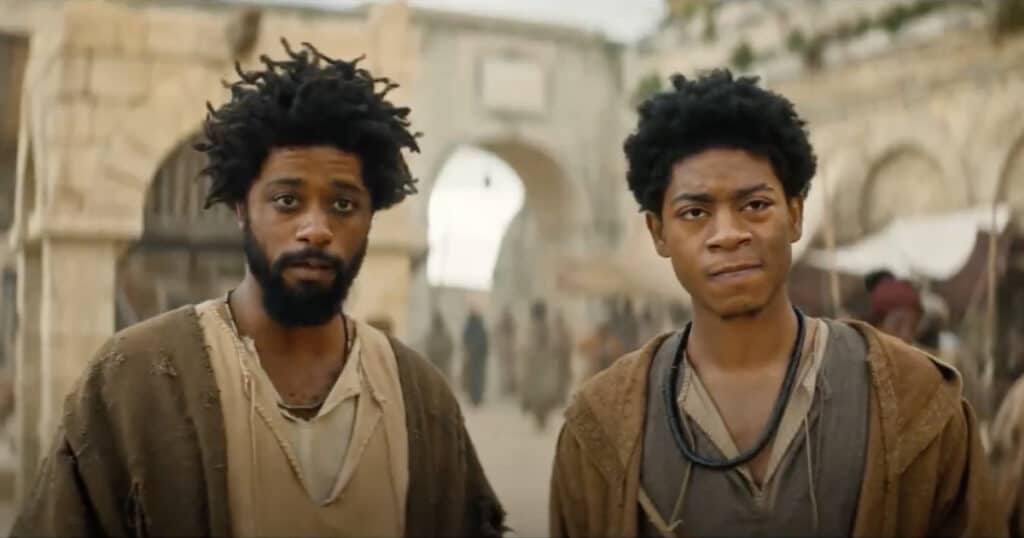
The cast for this is terrific, with Omar Sy a standout as the gladiator Barrabas, who the wily Clarence defeats in a duel and, as such, becomes his devoted protector. Sy’s always had tremendous star potential, and part of me hopes The Book of Clarence does well enough to lead to a sequel focused on Barrabas’s redemption. James McAvoy also makes for a good Pontius Pilate, even if he’s a little less reluctant a tyrant than in other character iterations. Best of all is Micheal Ward as perhaps the most sinister Judas Iscariot of all time (Samuels doesn’t seem to share Scorsese’s idea that, in some ways, he was the most loyal apostle). At the same time, Nicholas Pinnock makes an excellent Jesus in a portrayal that’s more traditional than you’d think.
For me, the only place The Book of Clarence falls flat is in the comedy department; as try as I did, I couldn’t find much humour in what’s ultimately being sold as a comedy. I chuckled a few times, such as when Alfre Woodard’s Mary tried to explain divine conception to Clarence, but mostly, I found the film worked better as a legit bible epic. Even jokier roles, such as an appearance by Benedict Cumberbatch as a guy constantly mistaken for Jesus due to how he looks, have a more emotional payoff than you’d think. In the end, The Book of Clarence is probably for a pretty narrow audience, but to my surprise, it turns out that I’m part of that minuscule group.


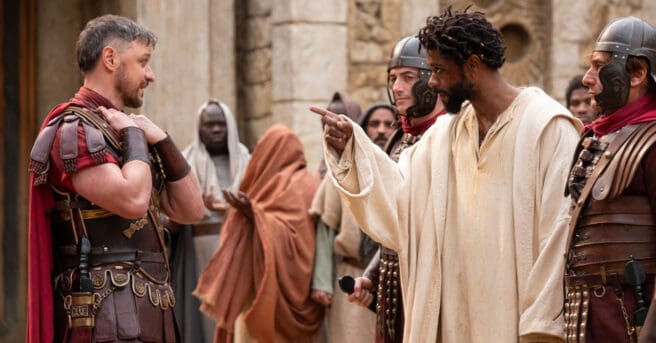




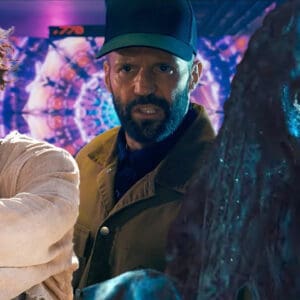
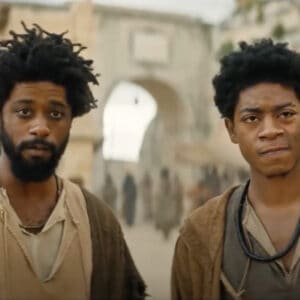
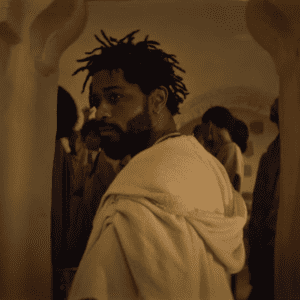
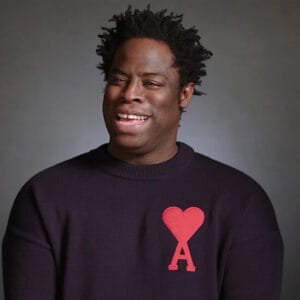





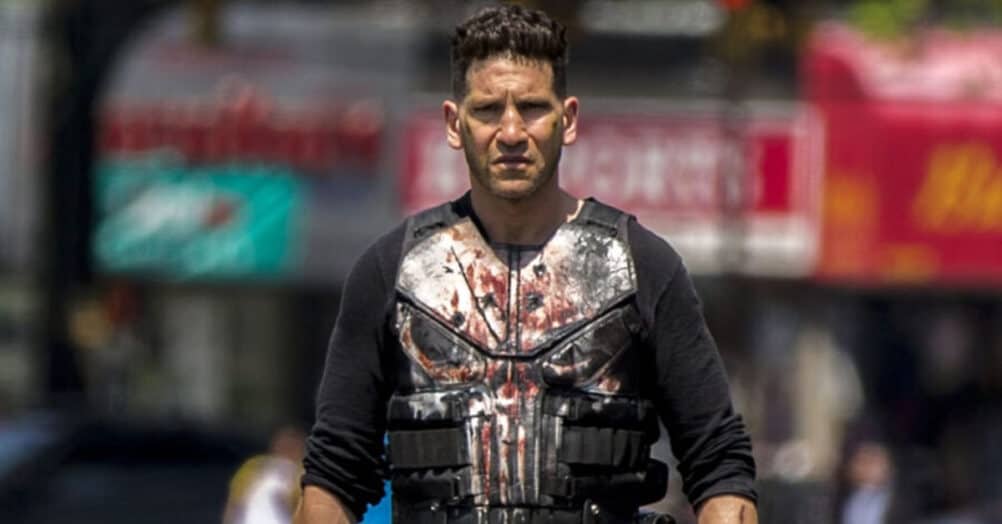




Follow the JOBLO MOVIE NETWORK
Follow us on YOUTUBE
Follow ARROW IN THE HEAD
Follow AITH on YOUTUBE